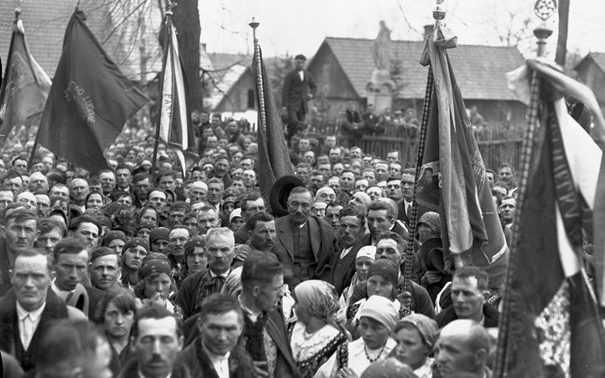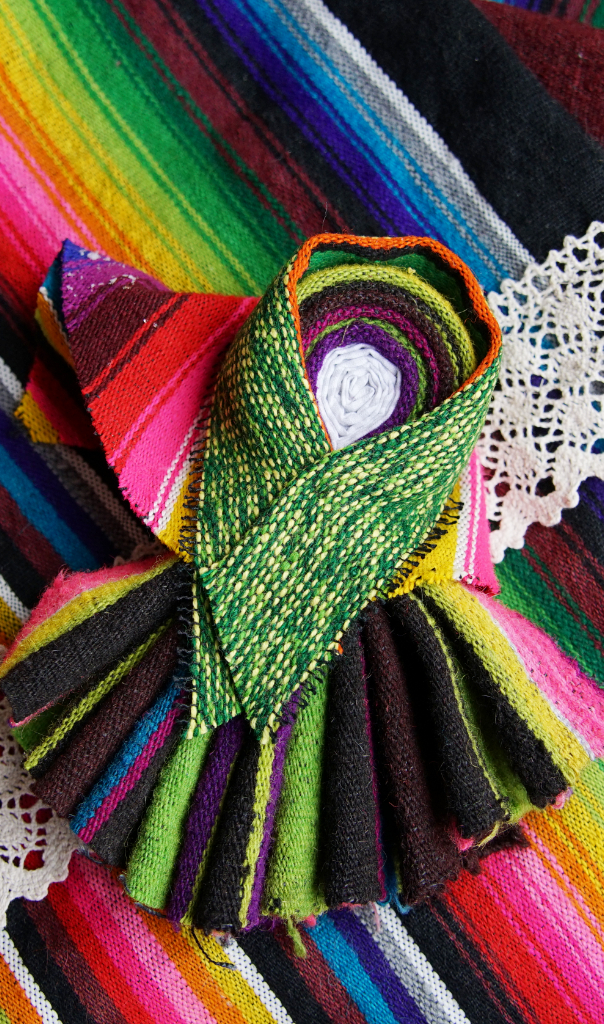W wydanej przez Narodowy Instytut Kultury i Dziedzictwa Wsi publikacji Chłopi polscy na przestrzeni wieków. Stan badań i perspektywy badawcze, pod redakcją prof. Jolanty Załęczny i prof. Mateusza Wyżgi, autorzy podjęli się opracowania wielu istotnych kwestii związanych z historią i tożsamością polskiej wsi.
In the article "For the government of peasant souls in the interwar period, " included in the above publication, Prof. Jolanta Załęczny touched on the efforts made by the peasant movement to awaken the socio-political consciousness of the peasantry. This is another important element in the question of narrating the history of peasant culture.
Jozef Szaflik, a researcher of rural history cited in the article, wrote about the peasant movement:
"The peasant movement, from the beginning of its activity, made many efforts to transform the psyche of the peasant, to make him a citizen in the full sense of the word, participating consciously in the political and social life of his village, commune, district, country. This required a long and tremendous amount of awareness-raising work, eradicating from the peasant mentality a number of habits and customs, stuck in him for centuries. One of them was to awaken the peasant's sense of self-esteem and human dignity."
The people's movement sought equal political rights for peasants and the building and strengthening of Polish statehood. Activists of the peasant movement proclaimed that "the power, security and permanence of Poland are based on the union of the people with the state." The peasants joined in the process of rebuilding the state by striving to activate the peasantry in participating in the political and social life of the village, commune, district and country.
People's activists made many efforts to transform the mentality of the peasants and make the peasant strata into citizens in the full sense of the word. They did this, among other things, through the people's press, which became a tool for shaping public attitudes and a place for presenting the activists' views.
The peasants wanted to rebuild the state and defend its independent existence. In proclamations addressed to the peasants, they called for organization and active participation in building and strengthening Polish statehood. In their actions, the peasant activists wanted to ensure the peasants' role as co-managers of the country and carry out socio-political reforms, most importantly, agrarian reform.
Before the outbreak of World War II, rural women began to strive to participate in social and political life. The Populists in their activities also tried to win the favor of women. In the pages of "Women's Newspaper" - a supplement to "Wola Ludu" (the organ of the PSL "Piast") wrote:
"The woman of the present time having the right to vote has become an equal and at the time of voting decides the fate of Polish parliamentary and state politics. (...) Our slogan - the good of Poland, and the roads to this goal are: the moral and religious upbringing of children, the creation of a beautiful family hearth at home, and the mitigation of fierce party fights by instilling in the youth the noble ambition of creative work, and the removal of everything evil from their souls."
In late 1938 and early 1939, the press argued that women should take an active part in local elections. Women also stressed that there were more than 50% of women in the villages, and by virtue of this, they should have representatives in village councils. Women folk were exhorted to ensure that female candidates were introduced to the lists of village councils.
The first conference of women folk activists held in Cracow in March 1937 was evidence of women's increasing awareness of socio-political issues. The main topic of discussion was the role of women and their participation in political life.
The leaders of the people's movement looked on approvingly at the revival of women's willingness to participate in the political and social life of the country. It was emphasized that women constituted a force of moral influence on the younger generation of the countryside. Women soon became active not only in the peasant movement, but also in social and cultural organizations, and became increasingly involved in education, and thus in the education of the younger generation.
Peasants used to emphasize that in the peasant the nation lives and is reborn, and the state draws its strength from peasant societies, without the peasant there is not and cannot be a healthy nation and a strong state, because the peasant represents values that must not be hidden, and should be respected and used in an appropriate manner.
We invite you to read Jolanta Załęczny's article entitled. "For the government of peasant souls in the interwar period," included in the publication Polish Peasants over the Centuries. The state of research and research perspectives.
The book is available at the publisher's online store.
Elaborated. Arkadiusz Olszewski on the basis of.
Artykułu Jolanty Załęczny: O rząd chłopskich dusz w dwudziestoleciu międzywojennym, w: Chłopi polscy na przestrzeni wieków. Stan badań i perspektywy badawcze, red. M. Wyżga i J. Załęczny, Narodowy Instytut Kultury i Dziedzictwa Wsi, Wyd. Akademii Humanistycznej, Warszawa 2023
Photo: Chairman of the People's Party Wincenty Witos carried on his arms by activists of the people's movement during the celebration of the XXVth anniversary of his political activity, April 30, 1933. Photo: NAC

